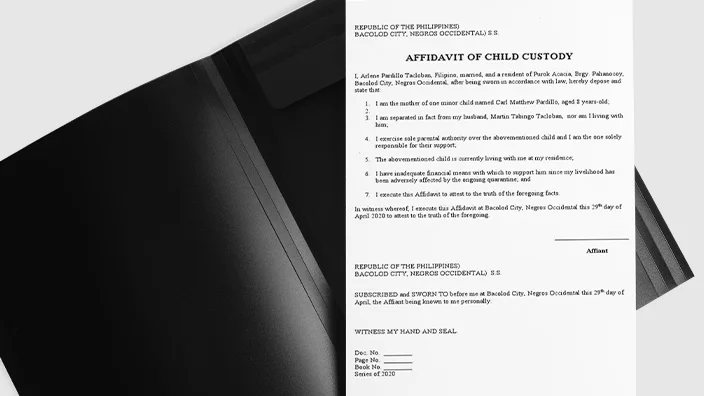If you are parting ways with your spouse and one of the parents has filed a child custody case in a state, then you are in the perfect place to learn “how to change jurisdiction for child custody”?
There are laws about child custody cases when a parent or guardian leaves the state. Every state law differs from another in child custody cases.
In some states, it is a difficult process but other states have developed laws such as the Uniform Child Custody Jurisdiction that deals with such matters.
In this article, we are going to walk you through the entire process of how to change jurisdiction for child custody. The complexity of Jurisdiction, confusion in child custody cases, and many more will be discussed.
Table of Contents
Jurisdiction - an Initial Child Custody Order
As we have observed over the years in many child custody cases, the primary question to ask in every court case is “whether the court has jurisdiction”?
This is an important question because in a child custody case, one parent, often, try to file in a forum that is not convenient for the other parent.
Such acts make the case more difficult. But you don’t have to accept this because, in the United States, there are rules that outline which courts have jurisdiction to hear child custody cases and which courts don’t.
Related Study: What Happens After Temporary Custody Is Granted
If you find yourself in a child custody case, you can file a motion to change jurisdiction or dismiss the case. The laws that deal with jurisdiction in child custody cases include: -
- Federal constitutional law
- Oklahoma state statutes on jurisdiction and venue
- The uniform child custody jurisdiction and enforcement act (UCCJEA)
Almost all states in the U.S. adopt the Uniform Child Custody Jurisdiction and Enforcement Act (UCCJEA). This law outlines the requirements for submitting an initial custody order and modifying parenting orders.
 It is significant to know that the initial custody order is the judgment passed at the time of the divorce by a competent authority.
It is significant to know that the initial custody order is the judgment passed at the time of the divorce by a competent authority.
Primarily, the UCCJEA holds that the child’s home state has exclusive and continuing jurisdiction for child custody proceedings in the courts.
It means that if your child has been living with you, in Colorado for instance, for six consecutive months before the commencement of the proceedings, then the court has the right to assume child custody jurisdiction if it has: -
- Significant connections with the child and at least one parent
- Substantial evidence concerning the child’s care, protection, personal relationships, and training.
There are instances when more than one state demonstrates the above, the courts of those states must decide which court has significant connections and would best serve the interests of the child.
What is the UCCJEA?
The Uniform Child Custody Jurisdiction and Enforcement Act is a rule or law passed by each state in the United States to address jurisdictional issues in child custody cases.
It was created to give clarity and consistency in finding out which state’s court has the competent authority to make decisions related to child custody matters.
 An important aspect of the UCCJEA is that it prioritizes the child's “home state” as the primary jurisdiction for child custody matters.
An important aspect of the UCCJEA is that it prioritizes the child's “home state” as the primary jurisdiction for child custody matters.
It means that a state where the child has lived for a period of six months or more is considered the appropriate jurisdiction for child custody determinations.
How to Change Jurisdiction in a Child Custody Case?
There could be many reasons to change a jurisdiction in a child custody case. Whatever reasons you have, you must follow the below instructions if you want to change jurisdiction in a child custody case.
In any case that involves changing the custody of a child, the party must file a “UCCJEA” affidavit. The affidavit must mention: -
- Address of the child for the past five years
- You must mention the names and current addresses of all persons with whom the child has lived in the past five years.
- If the party filing the affidavit;
- Have they participated in any other case that involves child custody?
- Whether they know of any other case that would potentially affect the custody of the child.
- Whether they know any party or person who might claim custody or visitation with the child.
- In case the party knows of any such persons, he must include their names and current addresses in the affidavit.
 Now if you are served with a notice about a child custody case, you must see whether or not they have filed a UCCJEA affidavit. In case there is no affidavit, you may ask the judge to stay the case until the UCCJEA affidavit is filed.
Now if you are served with a notice about a child custody case, you must see whether or not they have filed a UCCJEA affidavit. In case there is no affidavit, you may ask the judge to stay the case until the UCCJEA affidavit is filed.
Additionally, if the affidavit does not contain the required information, then according to law you can ask the judge to stay the case until the submission of the required information.
Furthermore, if you notice the person has included false information in the affidavit, let the judge know of it.
What Happens to the Child Custody Case if You Relocate?
Sometimes, people need to switch their child custody case to another county, state, or borough for many reasons. Relocation may be due to professions like the military or for people working for NGOs or any other profession.
Generally, people believe that the child custody jurisdiction switches to the new state as they move there.
However, this is not the case and it does not happen so swiftly. You must understand what the real situation is and what the law says.
Confusion in Child Custody Case
Sometimes, confusion arises when couples have lived in a state for four or five months before filing for divorce.
They are wrong to believe that they qualify for the requirements for filing for divorce in Colorado as well as the requirement for child custody jurisdiction.
 However, the law does not say that. According to the law, there is a requirement to be a resident in Colorado for straight 182 days if it is to be considered the child’s home state.
However, the law does not say that. According to the law, there is a requirement to be a resident in Colorado for straight 182 days if it is to be considered the child’s home state.
Complexities in Jurisdiction
We spoke at length about child custody cases but there seems to be difficulties in the entire process. Cases involving child custody may have high stakes for both of the parents.
Therefore, it is suggested to speak to an experienced attorney before reaching any conclusion.
There are numerous difficulties and complications like domestic violence and financial circumstances of the parents in child custody cases, thus talking to an experienced child custody lawyer is suggested.
Where to File a Child Custody Case?
In most cases, you can file for custody in the child’s “home state” where the child has lived for about 6 months.
However, there are exceptions as well to the rule. If your child is less than six months old, the child’s “home state” is the state where the child has lived from birth.
In case you relocate to a new state, then you may not be able to file for custody until you have lived for at least six months.
However, you are still able to file for emergency jurisdiction. If there is more than one state involved in the custody matters then the case may become over complicated.
If you want to get emergency custody in a state you moved to, then it depends on the state laws you are in. All states in the U.S. follow the UCCJEA except Massachusetts. Under the UCCJEA, you can file for emergency custody if you are not in the home state of the child.
Conclusion
Child custody cases may involve complications but you have got the back of the law through which you can change jurisdiction for child custody by knowing the fact how to change jurisdiction for child custody.
Numerous difficulties and complications are talking to an experienced child custody lawyer is suggested.
Every state has its laws that deal with child custody jurisdiction, therefore getting a lawyer is the best option to help you change jurisdiction. You can change jurisdiction for child custody if you follow the laws developed by states.
One such law is the “Uniform Child Custody Jurisdiction and Enforcement Act”.
It was created to give clarity and consistency in finding out which state’s court has the competent authority to make decisions related to child custody matters.
Frequently Asked Questions
How do I change my family court location?
You can petition the court to transfer your case. This applies to cases that involve divorce, domestic violence, legal separation, child custody cases, and related family law cases.
Who wins most child custody cases?
Interestingly, women win almost 90% of child custody cases for many reasons. Primarily mothers are the first caregivers of their children and most men do not follow this case.
What not to say during custody cases?
You should not say anything sarcastically or in a tone that hurt the sentiments in the court. Secondly, since child custody cases are about kids therefore you should not tell a lie.
How long does a father have to be absent to lose his rights in Alabama?
In Alabama, the father commits an abandonment crime if he is legally bound by the care. To abandon one of parental rights, he must have deserted the child in the last 6 months.


















